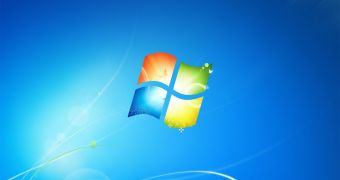It's no secret that Windows is one of the most pirated pieces of software in the entire world, and no matter how hard Microsoft struggles, millions of users out there are still running the operating system without a genuine license.
But every once in a while, Microsoft makes the headlines with lawsuits against individuals caught using pirated Windows, and it's no surprise that such news is sending chills down the spine of those running the operating system without a genuine license.
And truth be told, that might actually be the reason Microsoft makes it public because it's pretty clear that it could have a strong emotional impact on those running pirated Windows.
In case you were wondering how exactly the company manages to track down a Windows pirate, it's actually easier than you think, and the court documents published today provide us with a glimpse into this investigation.
Your IP is sent whenever you attempt activation
Basically, users are tracked down once they attempt to activate their copy of Windows with a key that's registered into Microsoft's systems as stolen or pirated.
A computer that tries to activate a specific copy of Windows sends several details to Microsoft's servers, including the IP address of the machine.
Here's how Microsoft explains the entire process:
“As part of its cyberforensic methods, Microsoft analyzes product key activation data voluntarily provided by users when they activate Microsoft software, including the IP address from which a given product key is activated.”
Imagine that the number of computers that are trying to activate Windows every day is huge, so Microsoft analyzes all this data to look for patterns that might indicate a pirated license (such as licenses listed as stolen or cracked).
“Cyberforensics allows Microsoft to analyze billions of activations of Microsoft software and identify activation patterns and characteristics that make it more likely than not that the IP address associated with the activations is an address through which pirated software is being activated.”
What happens when your IP is believed to use a pirated license
In most of the cases, Microsoft doesn't go after individuals who are spotted with a pirated license unless it's really worth the time and resources for this. The company instead prefers to hunt down companies, organizations, and individuals who are only trying to activate tens or hundreds of pirated licenses.
Once it has your IP, Microsoft pretty much knows your identity. Your IP holds details about your ISP, which in turn has all your personal information because you're providing it for Internet access.
The company can then file a legal complaint and ask your ISP to provide your details. Very often, the judge approves the request, so you're brought to the court, where you might end up with a hefty fine because you violated Microsoft's intellectual property.
Of course, it takes months until this whole process is completed, and it can all get a lot more complicated if the users in questions are turning to proxies or other methods to hide their identity.
Needless to say, it's even harder to track down someone who uses a pirated copy of Windows that doesn't attempt to activate with Microsoft's server, but Redmond could be working to change that in future Windows versions with stronger protection systems.

 14 DAY TRIAL //
14 DAY TRIAL //